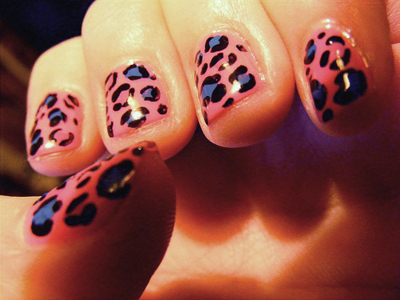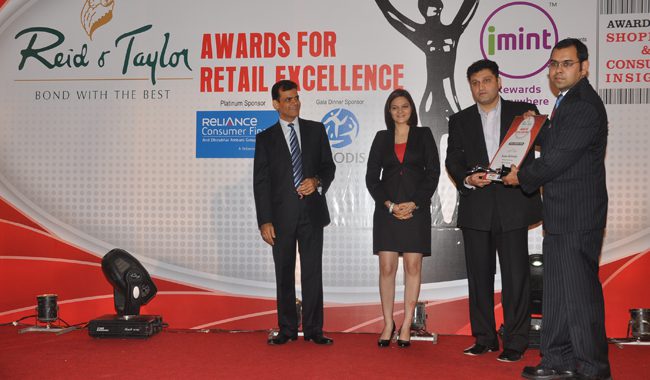
Neither Lipstick, nor Face Makeup, This Time Women Turned to Nail Polish During the Recession
According to the freshly released data by worldwide research and consulting firm Kline & Company, U.S. sales in the cosmetics and toiletries market declined by 0.8% in 2009, not a detrimental drop considering the recent market situation and the last major recession of 1991, when sales declined by 1.9%. The data released for Cosmetics & Toiletries USA 2009 report indicate that sales have reached a total of $35.5 billion at the manufacturers’ level.Continue reading→
Kline’s Vice President to Present about Specialty Chemicals Strategy to Identify/Build Successful Portfolios in India at 11th Annual Chemical Weekly Business Outlook Conference
Dilip Chandwani, Vice President with Kline & Company, leading the firm’s Technology & Manufacturing Economics Practice will present at the 11th Annual Chemical Weekly Business Outlook Conference on Wednesday, April 14, at 9:10 a.m. at the ITC Grand Maratha Sheraton, Sahar, in Mumbai. He will speak about Specialty Chemicals Strategy to Identify/Build Successful Portfolios in India.
The topics covered will include:Continue reading→
Synthetic Latex Polymers: Changing Shape of the Industry
2009 was a year of change for the synthetic latex polymers industry—not only were latex emulsion customers battling with the recession, resulting in latex emulsion orders dropping significantly, but merger and acquisition activity affected the supplier base in major consuming regions.Continue reading→
Naturals Market Resists Recession, Posts Strong Global Growth
The market for natural personal care products has persevered through the recession, posting strong gains around the world. Spurred by growing consumer awareness, better raw material supplies, and wider availability of more affordable products, the naturals market posted double-digit gains in 2009. It is a sustained pattern of strong growth that has personal care product marketers of all sizes looking to seize the growing opportunities in worldwide markets to tap into this attractive industry. More…
Big Oil Faces Global Competition from National Oil Companies
Until recently, nationalized oil companies (NOCs) posed a competitive threat to international oil companies (IOCs) only in their home country. However, a number of factors have now converged to prompt once-isolated NOCs to expand their reach on a global scale. This emerging threat will force IOCs to devise new strategies to compete in the worldwide marketplace against nationalized companies, for which profits and shareholder satisfaction are not the only motivating factors. More…
The “New New”– Thoughts on Working out New Business Models to Succeed in Hot, Fresh Areas
It is often the case that consultancies act as a weather vane for the health of the chemical and related industries. If the industry is doing well, consultancies tend to thrive. We all know that since Q4 2008 all has not been well in the chemical sector and the economy in general. But now….now we at least are getting to see some “green shoots” of economic recovery. Companies who had frozen all discretionary spending over the past year or so are now coming out of their bunkers and beginning to talk again about projects previously put on hold. Things are still a little delicate and cautious. Some enquiries are still asking, “How much would it cost to…?”, “What if we wanted to do this…?”, and “How can we get growth after such a period of stagnation…?” Some are actually signing off and going ahead with projects, while others are holding their fire until the next quarter results. Petrochemical companies have been particularly cautious to spend any money at all.
I talk to a lot of CEOs and senior business developers. Hot areas seem to be solar energy/photovoltaics, biotech, bio-based chemicals and polymers, green chemistry, and general sustainability. Many have read or heard a lot about these areas, and the questions often asked are “How can we participate in this sector? Where? What kind of volume/value business can we expect and after how long?”Continue reading→
Kline Received Prestigious Reid & Taylor Retail Leadership Award at Asia 2010 Retail Congress
Kline’s Senior Vice President Susan Babinsky has been honored with the prestigious Reid & Taylor Retail Leadership Award at the Asia Retail Congress 2010. This award was accepted by Rubal Bajaj, senior consultant at Kline, who presented highlights from Kline’s Global Beauty Retailing report with a Focus on the BRIC Markets at this conference.
Kline Sees Continuous Growth on the Seed Treatment Market Due to its Cost Effectiveness in Protecting Valuable Seeds
The global seed treatment market is estimated at over $2.5 billion in 2009 and will continue to grow as it is considered a cost-effective method to protect the increasingly valuable seed. According to data from Seed Treatment 2009 Global Series: Market Analysis and Opportunities conducted by worldwide consulting and research firm Kline & Company, the most rapidly growing markets are projected to be corn in Argentina and Brazil and soybeans in Brazil, growing at a rate above 7.5%.Continue reading→
Kline Study Projects Shift to Emerging Countries and Environmentally Friendly Products will Boost Growth for Antifreeze and Coolants Globally
While North America maintains a leadership position in antifreeze and coolants used for consumer and commercial applications, Asia-Pacific takes the lead for the factory-fill business. According to data from the Antifreeze and Coolants 2009: A Hot Opportunity or Cold Comfort? report conducted by worldwide consulting and research firm Kline & Company, over half of the antifreeze and coolants sold to automotive original equipment manufacturers (OEMs) worldwide for factory-fill can be attributed to Asia-Pacific alone.Continue reading→
Recent Recession Decidedly Influenced Cost Structures in the U.S. Personal Care Market
Most of the leading personal care marketers were hit by higher costs of goods caused by the recent recession. While the high crude oil prices from the beginning of 2008 resulted in higher raw material, processing, packaging, and distribution costs, these normalized in the second half of 2008 and the first half of 2009. The recession brought about other significant challenges for personal care marketers during this time. Cosmetic companies had to develop a wide range of strategies in order to keep pace with their competitors.Continue reading→










